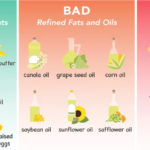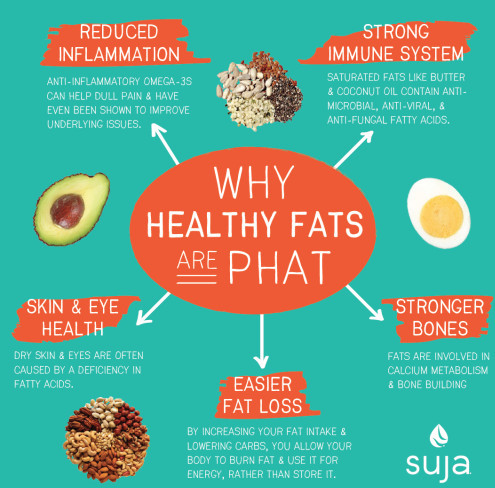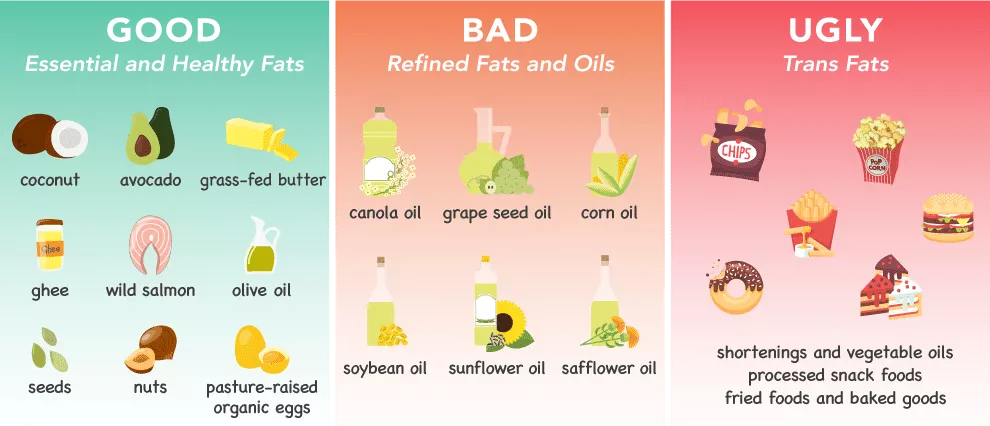
Does Fat make you Fat?
Just like carbohydrates or any area of nutrition, there is a lot of misunderstanding and confusion about fat. This leaves a lot of us unsure what to do or eat. Because of this, we usually end up with us focusing on the wrong things, so Let’s jump in and get things straight! Just like calories, carbs and protein understanding fat and it’s role in your nutrition plan is so important to your goals and overall health!
What are fats?
Fats are the third and final macronutrient that make up the food we eat on a daily basis. They are made up of 9 calories per gram whereas protein and carbs contain 4 calories per gram. They are also one of the main sources of energy for the body and are the primary source of fuel for low intensity exercise and rest.
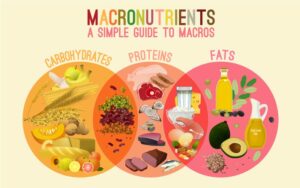
Where do we get fats from?
We get fats from several places, but here are the primary sources of fats: nuts, seeds, avocado, oil, butter, nut butters, dark chocolate, and meats. When looking at this list and choosing which fats we want to consume, it is important to understand just like carbohydrates or proteins, not all fats are created equal.
Fats are going to be categorized into a few different groups. While protein is defined as complete or incomplete and carbs are defined as simple or complex, Fats are defined by their saturation. So, when categorizing fats, we have to understand that they are either going to be saturated or unsaturated.
Saturated fats sources come from animal in forms such as red meats, dairy, eggs or butter. Experts have said that these types of fats are bad for you and your cardiovascular health but we will come back to that later.
Unsaturated fats are typically considered to be healthier fats. Within this group there are two kinds of unsaturated fats; polyunsaturated and monounsaturated. Monounsaturated fats include such foods as avocados and olive oil. Polyunsaturated fats include such foods as salmon, mackerel and walnuts.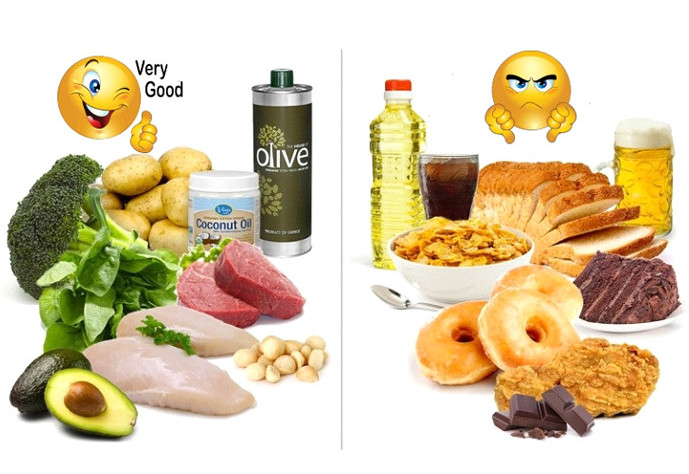
Some of us have been taught to think saturated fats are bad for us, but it is not true. In most cases, it comes down to moderation and balance. We want to not consume too many carbs and fats at the same time and thought out the day. This will cause you to over eat with your caloric goals, which leads to weight or fat gain. There are some naturally occurring saturated fats from things like cocoa, butter and beef and that are beneficial to our overall health and natural hormone production. With that said, yes, it is ok to have red meat and butter in moderation as long as your nutrient plan also contains mono and polyunsaturated fats. Again, it’s all about balance.
Trans fat is considered the worst type of fat to eat. Unlike other dietary fats, trans fats — also called trans-fatty acids — raises “bad” cholesterol and also lowers “good” cholesterol. A diet with high amounts of trans fats increases the risk of heart disease, the leading killer of adults. Animal foods, such as red meats and dairy, have small amounts of trans fats, which is not a cause for concern since it is in its natural form. Most trans fats are man-made and come from processed foods. Think of things like French fries, donuts, fried chicken or other fried foods, cakes and treats, margarine and shortening.

So what fats should you eat?
Like most things it depends on what we like to eat and what our goals are because again it’s all about balance! Foods such as whole eggs, avocado, salmon, cold water fresh seafood, nuts, seeds and nut butters are great choices. Having red meat and butter is good too, just less often.
We must also consider how to ensure that our nutrition plan also contains enough Omega-3s (fatty acids). They have been found to help lower blood pressure, reduce triglyceride levels, lower ‘bad’ (LDL) cholesterol and raise ‘good’ (HDL) cholesterol. If your body is lacking in omega-3, it may lead to dry and irritated skin, inflammation, hair thinning and loss, depression, dry eyes, and joint pain or stiffness. Full-mega is great product that I recommend if you are not getting a significant amount of omeg-3 in your diet (from fresh fatty fish) can be found here.
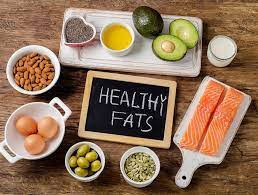
What about keto?
Over the last few years, there has been a lot of talk about high fat and low carb diets such as Keto. The ketogenic diet is a high-fat, moderate-protein, very low-carbohydrate diet usually no more than 40 grams a day (about the equivalent of two bananas). The diet forces the body to burn fats rather than carbohydrates. The problem with following this diet is if you consume too many carbs, it can kick your body out of ketosis — and it takes several days to a week to get back into it. In the meantime, your weight loss may be disrupted.
So, even if it were better for one individual to follow a high carb, low fat plan or high fat, low carb plan it really doesn’t matter if they can’t stick to it! There really isn’t one best diet, it is just what you can balance and stay dedicated to over a long period of time while sticking to your calorie and protein goals!
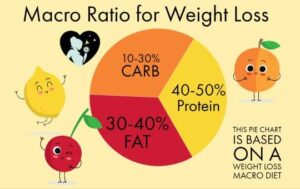
How much fat should I be eating?
Like everything, it depends… you need to make sure you are eating enough fats to support your body’s regular functions and hormone production. If you are not consuming enough fat, you could be at risk for diabetes or heart attack. This is because the good and healthy fats help to reduce cardiovascular disease and other heart issues.
Females should have a minimum of 40 grams per day. On average, you want to consume 30% of your calories from fats, which could range from 40 -97 grams per day depending on your overall caloric intake.
Males should have a minimum of 50 grams per day. The same rules apply, but males typically have a higher caloric limit, so 30% for them might be much higher.
If you need help to figure out how many calories you should be consuming and breaking it down even further to figure out the optimal amount of fats for your body, please reach out!
Another thing to note, if you are someone like me with an auto immune issue, a lower carb and higher fat diet will help keep the inflammation inside of your body at bay. Keep in mind that not all fats are created equally meaning you don’t want a higher fat diet filled with all the greasy fried processed foods! It is best of course to stick with foods that have naturally accruing fats from animals and plants.
So do fats make you fat?
The short answer is no, fats do not make you fat, we need them. BUT because they are higher caloric density than carbs or protein, it is very easy to over consume fats! SO having too many calories will cause you to gain body fat/weight! To maintain or lose body fat, you must consume the same or less than you are burning. If you are eating a ton of French fries, bacon, donuts and potato chips without doing any physical movement, it is very easy to pack on the ponds. Again, fats have 9 calories per gram whereas protein or carbs have only 4 calories per gram. So you just need to find the right balance!
If you have any questions or need any help with your nutrition, please don’t hesitate to reach out!
Aloha Until next time
Kat


